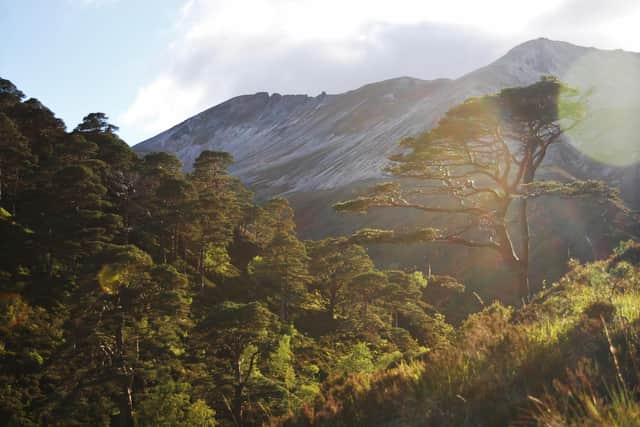Rainforests in Beinn Eighe nature reserve will be left to expand naturally for first time ever
New trees have been planted in the reserve every year since 1951, when Beinn Eighe became the first National Nature Reserve to be declared in the UK.
NatureScot, who run the reserve, will stop planting later this year, and allow the existing woodlands to regenerate without intervention.
Advertisement
Hide AdAdvertisement
Hide AdThe BBC reported that a final 20,000 trees, which were grown in the local area, will be transplanted into Glen Torridon near the end of 2022.
Experts believe that allowing the woodlands to grow naturally will create a healthier ecosystem.
Reserve manager Doug Bartholomew told the BBC: "The planted woodlands now link together all the fragments of ancient woodland on the nature reserve, creating a much more resilient environment for wildlife and to help combat climate change.
"For the next 70 years, our vision is to see the wood expand even more through natural processes, with a flourishing western pinewood supporting a range of healthy habitats and a rich variety of species."


Conservationist Peter Cairns told BBC Scotland: "Woodland that regenerates of its own accord is much more species rich, much more structurally diverse, which provides a greater range of niches for a greater range of species.
"Planting trees, with the best will in the world, doesn't replicate the natural evolution of a woodland."
The Beinn Eighe reserve, which is classed as a temperate rainforest, is home to several species of trees, including birch, holly, oak, rowan and aspen. It also contains Scots pine trees – some of which are nearly 400 years old.
A message from the Editor:
Thank you for reading this article. We're more reliant on your support than ever as the shift in consumer habits brought about by Coronavirus impacts our advertisers.
If you haven't already, please consider supporting our trusted, fact-checked journalism by taking out a digital subscription.
Comments
Want to join the conversation? Please or to comment on this article.
